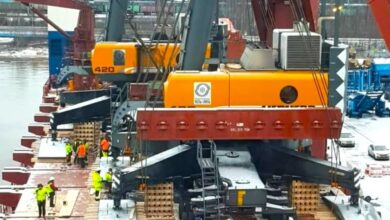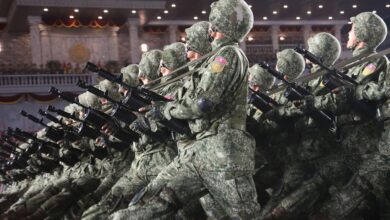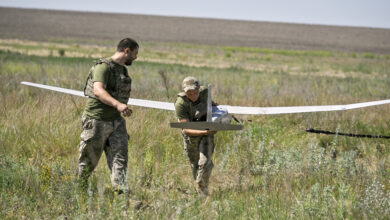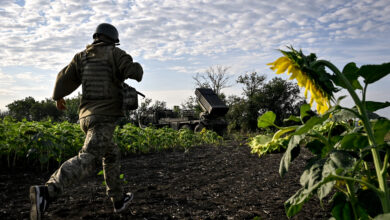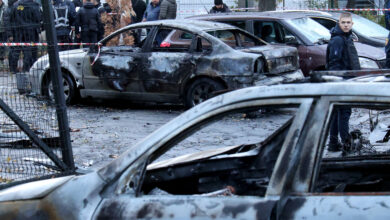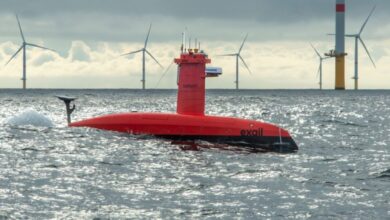French Energy Giant Accused of Fueling Russian Bombers
A Russian gas field partly owned by France’s TotalEnergies is being used to produce fuel for bombers striking targets in Ukraine, Le Monde daily reported Wednesday.
“Le Monde was able to track the supply chain from the Termokarstovoye gas field in Siberia to two military airbases, each hosting a squadron of multirole aircraft,” the journalists wrote.
They added that “these squadrons are accused… of having struck Ukraine’s civilian population, including the bombing of the theatre in Mariupol” on March 16, where hundreds of people are believed to have died in what Amnesty International has described as a “war crime.”
TotalEnergies — formerly Total — owns 49 percent of Terneftegaz, the company that extracts gas from the Termokarstovoye field, according to its 2021 annual report.
The other 51 percent is held by Russian company Novatek, in which the French firm also holds a 19.4 percent stake.
Le Monde wrote that natural gas condensates — a liquid hydrocarbon recovered when extracting the gas itself — are sent by pipeline for processing at a Novatek plant in Purovsky.
They are then sent by rail for further refining into jet fuel in the southern Siberian city of Omsk.
Since early 2022 shipments from there have reached airbases near the Ukrainian border, the newspaper reported, citing data from financial information firm Refinitiv — the first such deliveries since 2017.
Beginning days before the war started in late February and through July, 42,700 tonnes of fuel were sent to the airbases at Morozovsk and Malshevo, the data showed.
“That’s enough to fill 3,400 Sukhoi Su-34 fuel tanks,” the investigative nonprofit Global Witness told Le Monde, referring to a particular model of Russian fighter-bomber.
While most global energy giants have quit operating in Russia since its invasion of Ukraine — often at great cost — TotalEnergies has said it will stop purchases of Russian oil by the end of 2022, but has proved reluctant to abandon its gas business there.
Chief executive Patrick Pouyanne said in March that gas fields exploited by the company’s joint ventures “are going to operate whether I leave or not” and remain vital for supplying energy to Europe.
The company told Le Monde that it “does not operate the Terneftegaz facilities” and “has no role in decisions about how the natural gas condensates are used.”
But it did acknowledge that “depending on the type of decision” its 49 percent stake in the company did give it a say in some choices.



